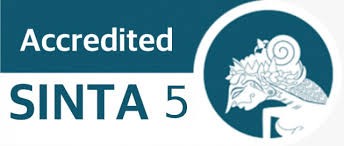Pengaruh Penggunaan Metode Pembelajaran Technology-Based Learning (TBL) Terhadap Peningkatan Literasi Numerasi Siswa SMAS Al-Washliyah
DOI:
https://doi.org/10.47662/farabi.v6i2.663Kata Kunci:
Technology-Based Learning (TBL), Literasi Numerasi, Sekolah Menengah Atas, Web SimulasiAbstrak
Penelitian ini bertujuan untuk mengevaluasi pengaruh penggunaan metode Technology- Based Learning (TBL) terhadap peningkatan literasi numerasi siswa kelas 10 SMA Al-Washliyah. Dengan desain eksperimental menggunakan kelompok kontrol acak, penelitian melibatkan dua kelompok: kelompok yang menerima pembelajaran dengan metode TBL menggunakan simulasi web PhET Colorado dan kelompok kontrol yang menerima pembelajaran konvensional. Data hasil pretest dan posttest digunakan untuk mengevaluasi dampak dari metode pembelajaran terhadap peningkatan literasi numerasi siswa. Hasil uji statistik menunjukkan bahwa kelompok yang menerima pembelajaran dengan metode TBL mengalami peningkatan yang signifikan dalam hasil posttest dibandingkan dengan kelompok kontrol. Integrasi teknologi, khususnya melalui simulasi web, memberikan pengalaman belajar yang lebih interaktif dan menarik, mendukung peningkatan literasi numerasi siswa.
Referensi
Almasri, F. (2022). Simulations to Teach Science Subjects: Connections Among Students’ Engagement, Self-Confidence, Satisfaction, and Learning Styles. Education and Information Technologies, 27(5), 7161–7181. https://doi.org/10.1007/s10639-022-10940-w
Benavides-Varela, S., Zandonella Callegher, C., Fagiolini, B., Leo, I., Altoè, G., & Lucangeli, D. (2020). Effectiveness of digital-based interventions for children with mathematical learning difficulties: A meta-analysis. Computers & Education, 157, 103953. https://doi.org/10.1016/j.compedu.2020.103953
Cevikbas, M., & Kaiser, G. (2022). Promoting Personalized Learning in Flipped Classrooms: A Systematic Review Study. Sustainability, 14(18), 11393. https://doi.org/10.3390/su141811393
Dai, C.-P., Ke, F., Pan, Y., & Liu, Y. (2023). Exploring students’ learning support use in digital game-based math learning: A mixed-methods approach using machine learning and multi-cases study. Computers & Education, 194, 104698. https://doi.org/10.1016/j.compedu.2022.104698
Di Natale, A. F., Repetto, C., Riva, G., & Villani, D. (2020). Immersive virtual reality in K‐12 and higher education: A 10‐year systematic review of empirical research. British Journal of Educational Technology, 51(6), 2006–2033. https://doi.org/10.1111/bjet.13030
Guraya, S. S., Guraya, S. Y., Doubell, F.-R., Mathew, B., Clarke, E., Ryan, Á., Fredericks, S., Smyth, M., Hand, S., Al-Qallaf, A., Kelly, H., & Harkin, D. W. (2023). Understanding medical professionalism using express team-based learning; a qualitative case-based study. Medical Education Online, 28(1). https://doi.org/10.1080/10872981.2023.2235793
Haleem, A., Javaid, M., Qadri, M. A., & Suman, R. (2022). Understanding the role of digital technologies in education: A review. Sustainable Operations and Computers, 3, 275–285. https://doi.org/10.1016/j.susoc.2022.05.004
Hillmayr, D., Ziernwald, L., Reinhold, F., Hofer, S. I., & Reiss, K. M. (2020). The potential of digital tools to enhance mathematics and science learning in secondary schools: A context-specific meta-analysis. Computers & Education, 153, 103897. https://doi.org/10.1016/j.compedu.2020.103897
Hwang, G.-J., Wang, S.-Y., & Lai, C.-L. (2021). Effects of a social regulation- based online learning framework on students’ learning achievements and behaviors in mathematics. Computers & Education, 160, 104031. https://doi.org/10.1016/j.compedu.2020.104031
Marougkas, A., Troussas, C., Krouska, A., & Sgouropoulou, C. (2023). Virtual Reality in Education: A Review of Learning Theories, Approaches and Methodologies for the Last Decade. Electronics, 12(13), 2832. https://doi.org/10.3390/electronics12132832
Meadows, M. L., & Caniglia, J. C. (2019). Using PhET Simulations in the Mathematics Classroom. The Mathematics Teacher, 112(5), 386–389. https://doi.org/10.5951/mathteacher.112.5.0386
Novike Bela Sumanik, Lamtiar Ferawaty Siregar, Yenni Pintauli Pasaribu, & Yorinda Buyang. (2023). Literature Study: Liveworksheet as a Science Learning Media Electronic Student Worksheet in The Merdeka Curriculum. Technium Social Sciences Journal, 49(1), 374–382. https://doi.org/10.47577/tssj.v49i1.9828
Rapanta, C., Botturi, L., Goodyear, P., Guàrdia, L., & Koole, M. (2021). Balancing Technology, Pedagogy and the New Normal: Post-pandemic Challenges for Higher Education. Postdigital Science and Education, 3(3), 715–742. https://doi.org/10.1007/s42438-021-00249-1
Wei, X., Cheng, I.-L., Chen, N.-S., Yang, X., Liu, Y., Dong, Y., Zhai, X., & Kinshuk. (2020). Effect of the flipped classroom on the mathematics performance of middle school students. Educational Technology Research and Development, 68(3), 1461–1484. https://doi.org/10.1007/s11423-020- 09752-x
Zrudlo, I. (2023). Why the learning styles myth appeals and how to persuade believers otherwise. Teaching and Teacher Education, 132, 104266. https://doi.org/10.1016/j.tate.2023.104266
Unduhan
Diterbitkan
Cara Mengutip
Terbitan
Bagian
Lisensi
Hak Cipta (c) 2023 Minta Ito Simamora, Ririen Setyawati, Herni Mayang Sari, Irfa Apriani, Syah Fitri, Feny Meyla Nasution, Rina Sari, Zakia Syabani, Afni Kholiza

Artikel ini berlisensiCreative Commons Attribution-ShareAlike 4.0 International License.











